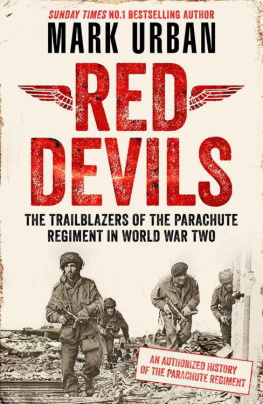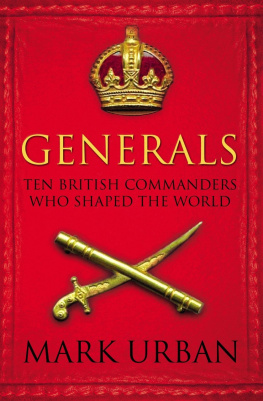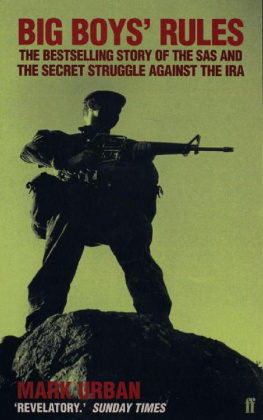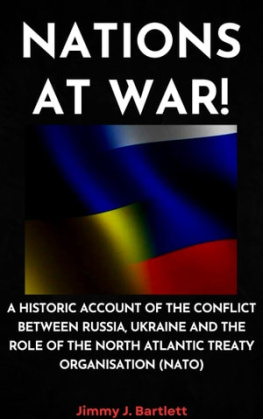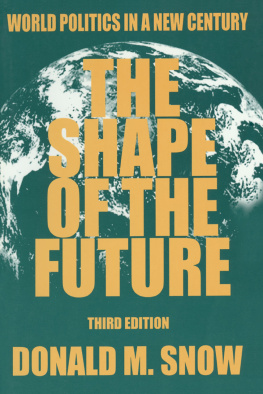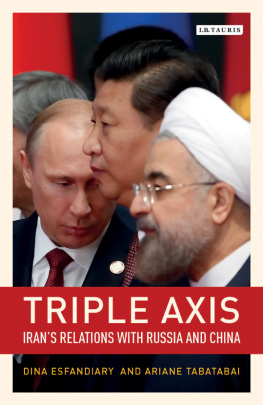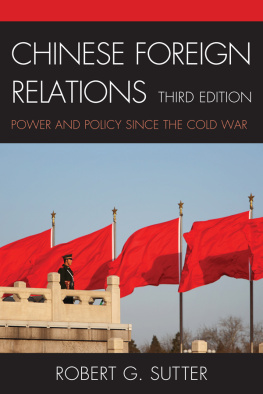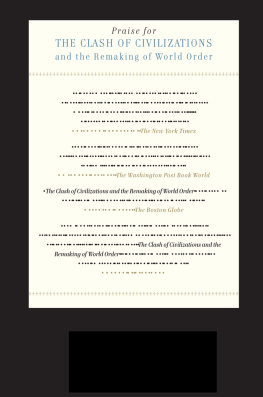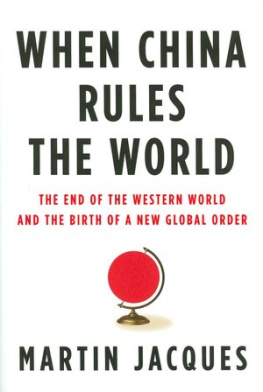TASK FORCE BLACK : THE EXPLOSIVE TRUE STORY OF THE SAS AND THE SECRET WAR IN IRAQ
I n December 2014, at a Whitehall Christmas party, I found myself in conversation with a senior officer in the Royal Navy. We were discussing the multiple threats to national security that had emerged during the previous months in Ukraine and the Middle East and how the British government, despite these, appeared to be contemplating further defence cuts. We need a Churchill, he said, looking into the middle distance, but I dont see any signs of one emerging.
Today, then, there are people high up in the government who believe the Western world is facing a situation comparable to that of the 1930s. Indeed, quite a few politicians from Nato and Nordic countries explicitly compared the actions of the Russian President Vladimir Putin in Ukraine to those of Adolf Hitler. Personally, I find this parallel unacceptably simplistic, and can see why its also very offensive to Russians. And if the situation really is as serious as what happened back then, why are so many Western leaders continuing to reduce their defences rather than launching the type of full-scale rearmament drive that the senior naval officer I spoke to at Christmas was longing for?
Whatever the exact significance of the Ukraine crisis, some very serious changes are taking place in the international system, and it is the purpose of this short book to alert readers to the importance of this historical moment. Western countries, beset by economic woes, are continuing the post-Cold War process of disarmament at the very moment that many would say a new Cold War is starting, and, more widely, the balance of global power is tilting markedly away from them.
There is a tangible sense of foreboding among many senior Western officials. Oddly, this concern about the broad trend of developments is being overlooked by much media reporting because of a preoccupation with the daily detail of the news agenda. But I have been hearing these views from a broad range of government practitioners for some time now. Some, like the naval man above, will not be named because they are still serving, but throughout this text you will find quotes from people who have until recently held top positions in the military, as well as some other thinkers and academics. They have agreed to my quoting our recent correspondence or conversations, even though some would usually be characterised as media shy. They are all, however, alive to the dangers of this moment.
While the Western will to shape the world, as well as its capability to do so, ebbs away, growing nationalism is hampering international cooperation and fuelling conflict, while meanwhile newly empowered non-state groups (and indeed some governments) are tearing up many of the conventions of acceptable international behaviour. That, then, is my purpose: to show how rapidly the global balance of power is shifting away from the West, and to examine some of the implications.
T he Spithead Naval Review of June 1977 was one of those ceremonial occasions at which Britain excels. Scores of warships anchored in the Solent, pennants flying and sailors cheering as the Queen cruised by in the Royal Yacht. Dozens of naval helicopters performed a fly-past, and those unable to attend the spectacle were treated to a full-scale BBC outside broadcast.
The fleet lying at anchor was much smaller than that of the Coronation Review of the Fleet in 1953, and that of today hardly resembles the Royal Navy of 1977. Spithead, though, was a snapshot of British naval power as it drained away on an ebb-tide every bit as powerful and irresistible as those Solent currents feared by weekend dinghy sailors.
As a sixteen-year-old anxious to see the spectacle, but without the Royal Yacht at my disposal, I reviewed the fleet two days before the Queen, from an Isle of Wight ferry. I had gone there to see the aircraft carrier HMS Ark Royal, rows of frigates with such names as Naiad, Euryalus and Ariadne, that evoked not just Nelsons victories but also the classical era, and to see the sinister shark-like profiles of Oberon-class submarines like Ocelot and Osiris. I was spellbound at the scale of it.
Today, Britain has no operating aircraft carrier, though it plans to get back into that business soon, and it has no diesel submarines like the O-class at all. Meanwhile its force of destroyers and frigates, the workhorses of the surface fleet, has shrunk from seventy at the time of Spithead to nineteen today.
This story of disappearing naval power could just as easily be applied to the other armed services. A couple of years after Spithead, I signed up as a gap year officer in the Royal Tank Regiment. For a short, heady time I was the commander of one of the British Armys nine hundred Chieftain tanks. Now there are fewer than two hundred tanks in service.
Britains post-war stepping back from global power was marked by a series of defence reviews or cuts, in laymans terms in 1957, 1974 and 1981. Undoubtedly, though, the end of the Cold War gave the greatest impetus to this process, at least in my lifetime. The 1990 package of cuts, called Options for Change, came in the year after the fall of the Berlin Wall, and presented Britain with its long-awaited peace dividend.
The Soviet threat, the driver for decades of defence spending, had collapsed and there could be no justification for the continued diversion of resources from the civilian economy. Like many other veterans of the Cold War, I embraced this wholeheartedly and was quite unsentimental about the disbandment or amalgamation of many regiments, including the one in which I had served. Such ebbs and flows in the status of great powers are familiar enough to students of history. While I might love reading about Nelsons or Wellingtons victories, the harsh realities of ships paid off or officers put on half pay at the end of the Napoleonic Wars were an integral part of Britains national story. A child of the 1960s, I had absolutely no hankering after empire.
There was a post-1990 demobilisation across Europe. France, always primarily a land power, took steps that would lead to its army shrinking from 548,000 to the current planned 213,000. The story was the same, whether for a national political elite labouring under the sense that preserving military power was part of preserving their top table status as permanent members of the United Nations Security Council, or for a country in which a completely different history produced equally different attitudes to military power and its use.



